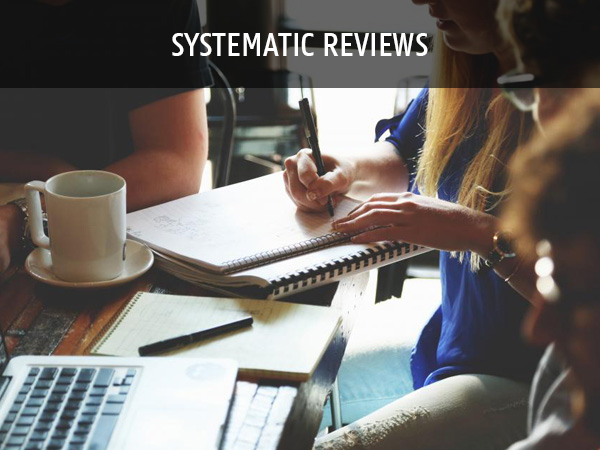

Conducting and publishing a systematic review and meta-analysis (5 half days) (NL)
19/11/2024 09:00 - 13:00
The Specialist Course “Conducting and publishing a systematic review and meta-analysis” is a Specialist course part of the Doctoral training programme given by the Knowledge Centre for Health Ghent and the Biostatistics Unit, with the support of the Flemish Government and the Doctoral Schools of Ghent University.
Target group
Since it is an interactive workshop with the possibility of individual guidance and support and due to the variety of research questions, the maximum number of participants is 10.
We give priority to PhD students of Doctoral School of Life Sciences and Medicine who actually plan a systematic review in the near future (see questionnaire in registration box).
Abstract
Systematic reviews are key element of evidence-based healthcare. However, its explicit and systematic approach distinguishes high quality systematic reviews from traditional reviews and lower quality systematic reviews. The course will teach the different steps to take to perform a high-quality, methodologically sound and reliable systematic review. The course is filled with workshops, exercises and personal feedback, thus preparing the participant to get immediately started with his/her own systematic review.
Topic
This course teaches the different steps in performing a high-quality, methodologically sound and reliable systematic review e.g. protocol development and registration, literature search, selection of studies, data extraction and management, quality assessment, data synthesis (including meta-analysis), writing and publication.
Objectives of the course
During this course of conducting and publishing a systematic review, the participant will learn:
- how to develop the topic and refine your research question
- which study eligibility criteria might be important for his/her review and how to determine the criteria
- which databases are relevant in the domain of life sciences and medicine for his/her review
- how to search for effective keywords, how to use mining tools for search term identification
- how to search for quality filters or search blocks
- how to build a sensitive search strategy and translate them into other databases in the domain of life sciences and medicine
- which sources you need to consider to search for unpublished or “grey” literature
- how to manage your literature
- how to create and where to register your protocol
- which tools are available to aid different processes of conducting a systematic review e.g. literature search, study selection and data extraction and management
- how to choose a quality assessment scale or checklist for quality assessment of included studies and the body of evidence
- how to perform a meta-analysis
- which essential elements need to be reported to increase your changes of publication into a high-impact journal
Additionally, the course participants will take the first steps in performing his/her systematic review.
Teachers
Dr. Nele Pauwels works currently (since 2015) as Information Specialist at the Knowledge Center for Health Ghent in Belgium. After she obtained her PhD in Medical Sciences, Nele worked as staff member at the Knowledge Center of the Belgian Red Cross-Flanders (Center for Evidence-Based Practice), where she developed evidence-based guidelines and systematic reviews, according to international gold standards.
She supports researchers (on individual basis) during all stages of performing and writing a systematic review (i.e. from protocol development and registration, literature search, record selection, data extraction, assessing the risk of bias, data synthesis, writing and publication). She teaches basic and advanced searching techniques in several (bio)medical databases (such as PubMed and Embase), and reference software (such as EndNote).
Dr. Ellen Deschepper, statistician at the Biostatistics Unit of the Faculty of Medicine and Health Sciences at Ghent University, provides statistical consulting and support to researchers of the faculty and the Ghent University Hospital. She graduated in 2000 as a Master of Science in Biostatistics at Hasselt University and obtained her Phd in Statistics in 2007 at Ghent University. She has over 17 years of experience in the field of biostatistics and is involved in several expert courses in statistics and in the practical use of statistical software.
Registration
https://event.ugent.be/registration/event/12bfa6c4-e4ca-42c7-b341-05a571934cae
If the courses are fully booked, please send an e-mail to doctoralschools@ugent.be In case of cancellations you can take the open place. PhD students who asked to be on the waiting list will have priority to register in the next course.
Please read the cancellation policy.
Dates: Tuesdays 19/11, 26/11, 3/12, 10/12 and 17/12 from 9:00 to 13:00
Registration fee
Free of charge for Doctoral School members.
Number of participants
Maximum 10 per course. Due to the limited number of participants, the teachers can give individual guidance and support during the workshop, which was evaluated by participants as an asset of this course.
Language
Dutch
Evaluation criteria (doctoral training programme)
100% attendance in all sessions
